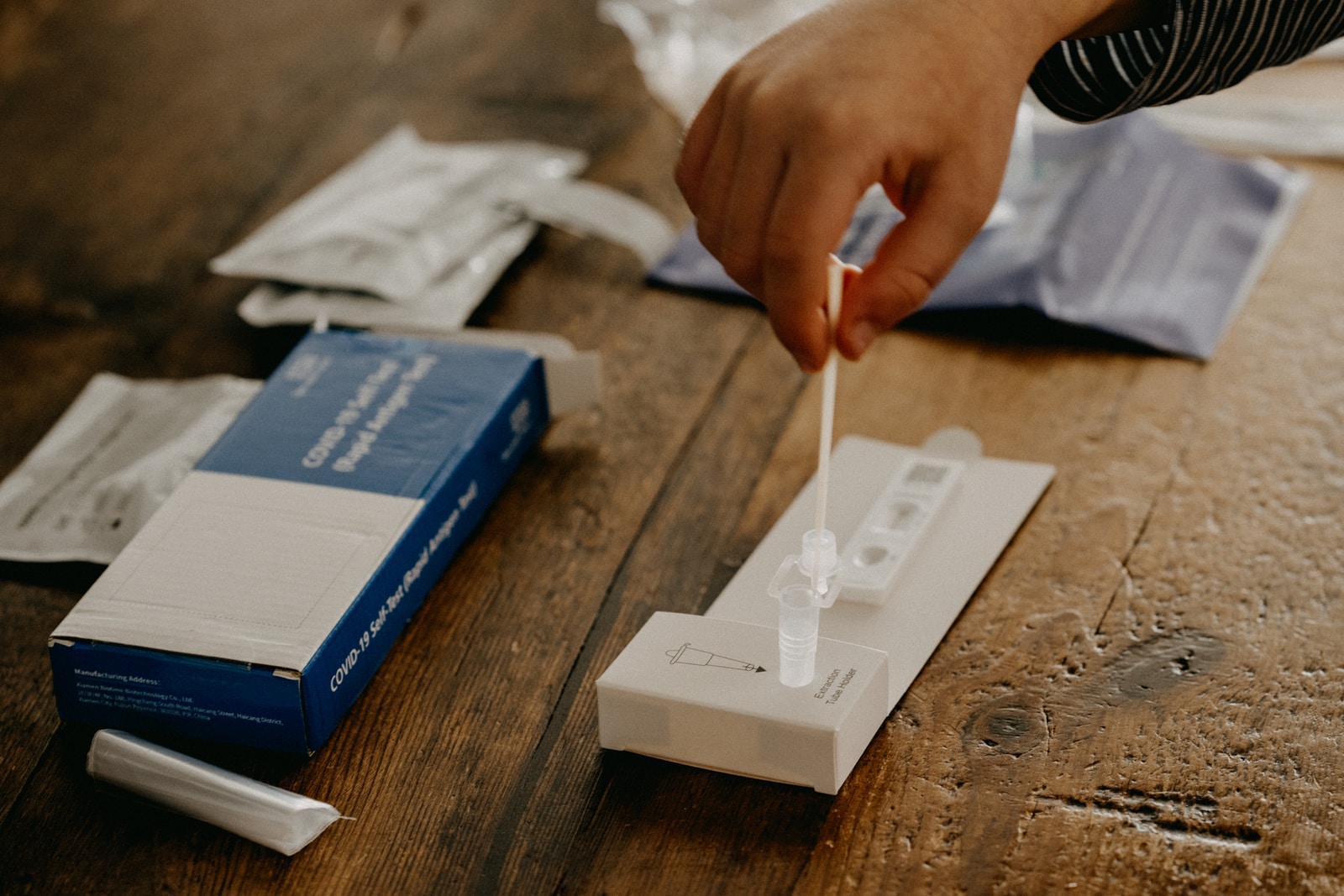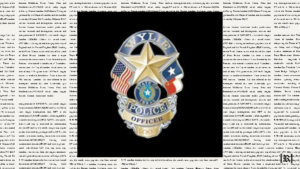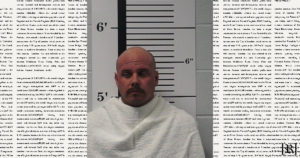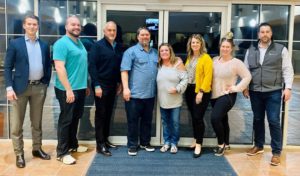By Allyson Waller, The Texas Tribune
Jan. 25, 2022
“Here’s how Texans can get free at-home COVID-19 tests and N95 masks from the federal government” was first published by The Texas Tribune, a nonprofit, nonpartisan media organization that informs Texans — and engages with them — about public policy, politics, government and statewide issues.
For mental health support related to COVID-19, call the state’s 24/7 toll-free support line at 833-986-1919 or text “COVID” to 832-479-2135. You can also reach a trained crisis counselor through the National Suicide Prevention Lifeline by calling 800-273-8255 or texting 741741.
This month, the Texas’ COVID-19 positivity rate — the percentage of tests with positive results — soared to its highest peak yet amid the onset of the highly transmissible omicron variant.
With the most recent surge in cases came a renewed reliance on testing. During the holiday season, Texans scrambled to secure at-home tests and testing appointments, draining local pharmacies’ stock and putting a strain on the state’s already worn-out health care system. With some of the major testing sites that had opened during the early months of the pandemic now closed, Gov. Greg Abbott on New Year’s Eve called on the federal government to roll out more testing sites across the state.
“In the situation that we’re in now with omicron, there’s a lot more demand for tests than there are tests available. They’re nearly impossible to buy now in most places,” said Dr. Rodney Young, regional chair of family and community medicine at Texas Tech University Health Sciences Center.
To address the latest testing shortages and help stave off the winter surge, the federal government has started distributing free at-home tests and plans to do the same with N95 masks.
The COVID-19 news cycle can get a little hectic, making it hard to keep track of what help is available and to whom. Here’s the latest on what Texans need to know about the free tools available from the federal government to fight the virus.
What is the federal government’s at-home COVID-19 test shipping program?
Last week, the Biden administration launched covidtests.gov, where people can order rapid at-home antigen tests free of charge. The program was launched in an effort to expand testing capacity in the U.S. as demand for testing products has soared, according to senior White House officials.
Officials said the Biden administration is focused on increasing the manufacturing of tests and has streamlined the Food and Drug Administration authorization process for COVID-19 tests.
In total, the Biden administration said it will be purchasing one billion at-home tests to ship to U.S. households, according to the White House. During the site launch last week, a half a billion tests were made available to order. The cost for the tests is covered through the American Rescue Plan, according to the Department of Defense.
The U.S. Postal Service has not yet revealed how many tests have been ordered through the new website, but an Axios-Ipsos poll released Tuesday estimated that more than two in five people in the U.S. have already ordered tests from the site.
During a Friday press conference, Jeff Zients, the White House’s coronavirus response coordinator, said demand for the tests was high the first few days of the site’s launch.
“We already have millions of completed orders through the website, and those numbers keep increasing each and every day,” Zients said.
How can I order the tests?
The only information required to request the tests when you visit covidtests.gov is your name and address. Orders are limited to one per household, and each order can contain up to four tests. Orders should take up to seven to 12 days to ship once placed. Tests will be delivered through the U.S. Postal Service, and recipients can track their orders by email.
To receive additional help to place an order, call 1-800-232-0233. Help is offered daily from 8 a.m. to midnight Eastern Time. For people with disabilities who need help placing orders, call 1-888-677-1199 for assistance. That phone line is operable on weekdays from 9 a.m. to 8 p.m. Eastern Time.
Tests are available to residents living in single- and multifamily homes or units. According to the USPS, “in some limited cases, addresses may not be recognized as multi-family by USPS.” Also, in some instances, units not registered as “separate addresses may not be recognized by the system.” If you are running into an issue placing your order because you believe an order has already been placed using your address, file a service request or contact USPS at 1-800-275-8777 to resolve the issue.
Tests can also be delivered to a residential post office box, according to the USPS.
What are the benefits of at-home testing?
It usually takes about 15 to 30 minutes to receive results from rapid at-home tests, but be sure to closely follow instructions that accompany your COVID-19 test. Though not as accurate as lab-based PCR tests — which are able to detect the virus in smaller amounts of genetic material — at-home antigen tests “can be a critical piece of solving the pandemic puzzle,” Young said. They eliminate the hurdle of having to schedule or wait days for test results and can prompt those who test positive to isolate and prevent virus spread, he said.
According to the Centers for Disease Control and Prevention, if an individual tests positive while at home, they should stay at home or isolate for at least five days, and if they are suffering a severe bout of the virus they should isolate for 10 days.
When should I take an at-home test?
At-home tests can be taken at any time, but there are certain time frames you may want to keep in mind.
If you have a limited supply and want to preserve your stock, you should test yourself before attending a gathering with people outside your home and if you have been in close contact with someone who’s tested positive for COVID-19, Young said. The CDC also recommends testing if you are showing symptoms related to COVID-19 such as fever, chills, shortness of breath, fatigue or a sore throat. Antigen tests perform best when someone is “symptomatic and their viral load is high,” according to the CDC.
Regardless of whether your COVID-19 vaccination is up to date, it’s also recommended to get tested at least five days after being in close contact with someone who tested positive for the virus, even if you are not exhibiting any symptoms, according to the CDC.
Where can I get a test while I wait for my delivery?
A patchwork of places offers tests across the state, with many at no cost, according to the Texas Department of State Health Services. However, recent demand has made access to testing limited.
Major pharmacies like Walgreens and CVS offer testing but require visitors to schedule appointments ahead of time. And be aware that some stores and pharmacies that sell at-home tests may limit the number of tests you’re able to purchase. Texans can also check with their city and county governments online to see if they’re operating any local test sites.
The federal government announced earlier this month that it would open testing sites across the state in at least six counties. Sites have already opened up in Tarrant, Hidalgo and Cameron counties. More are expected in Bexar, Dallas and Harris counties, though it’s not clear when they will open. The U.S. Department of Health and Human Services did not return a request for comment on when these additional sites would open.
Texans wanting to visit federal testing sites in their area are urged to register ahead of time. Some sites may require you to book an appointment online. Visit doineedacovid19test.com to register.
Will my insurance reimburse me for my at-home COVID-19 test expenses?
Since Jan. 15, private insurers are required to cover the costs of up to eight at-home COVID-19 tests per month per insured individual, following directives from the Biden administration.
According to the Centers for Medicare & Medicaid Services, this means that a family of four could obtain up to 32 at-home tests per month at no cost.
Check with your insurer to see if providers (stores, pharmacies or online retailers) are in their network so that you can obtain at-home tests as a covered expense. People with private insurance who paid for at-home tests out of pocket or out of network can also submit a claim for reimbursement with their insurance company. Make sure to keep any receipts or documentation to help with this process.
Specific guidance from some private insurers can be found here:
How will the federal government’s N95 mask program work?
Starting this week, the Biden administration will make about 400 million N95 masks available for pickup at pharmacies and community health centers across the U.S., according to The Associated Press. The masks will be free.
“This is the largest deployment of personal protective equipment in U.S. history,” Zients said during the White House’s Friday press conference. “We’ve already shipped millions of these masks out. And across the coming days, masks will begin to be available at local pharmacies and community health centers across the country.”
Some states have started to receive and distribute masks, but it’s still not clear when they will be available in Texas.
Why is the federal government giving away N95 masks?
The program was announced following recent updated guidance from the CDC stating that N95 masks “offer the highest level of protection” against the virus compared to other types of face coverings, such as cloth and disposable masks.
N95 masks “have more efficient engineering through multiple layers that allows them to, in a pretty reliable way, filter (about) 95% of those things that might pass through them that could infect you,” Young said.
Omicron is more likely to pass through single layer cloth masks or neck gaiters, Young said, making N95, K95 and surgical masks the preferred choices in terms of protection.
Young said the nation is in a good spot in terms of mask availability and emphasized the importance of continuing to use them as well as incorporating other recommended practices.
“All of us to some extent or another have the tools for social distancing and hand-washing and common sense (to avoid) crowded areas, especially during times where the pandemic activity is off the charts high like it is right now,” he said. “That’s a commonsense measure that any of us can take.”
Disclosure: Humana, Texas Tech University and Texas Tech University Health Sciences Center have been financial supporters of The Texas Tribune, a nonprofit, nonpartisan news organization that is funded in part by donations from members, foundations and corporate sponsors. Financial supporters play no role in the Tribune’s journalism. Find a complete list of them here.
This article originally appeared in The Texas Tribune at https://www.texastribune.org/2022/01/25/covid-tests-n95-masks/.
The Texas Tribune is a member-supported, nonpartisan newsroom informing and engaging Texans on state politics and policy. Learn more at texastribune.org.








